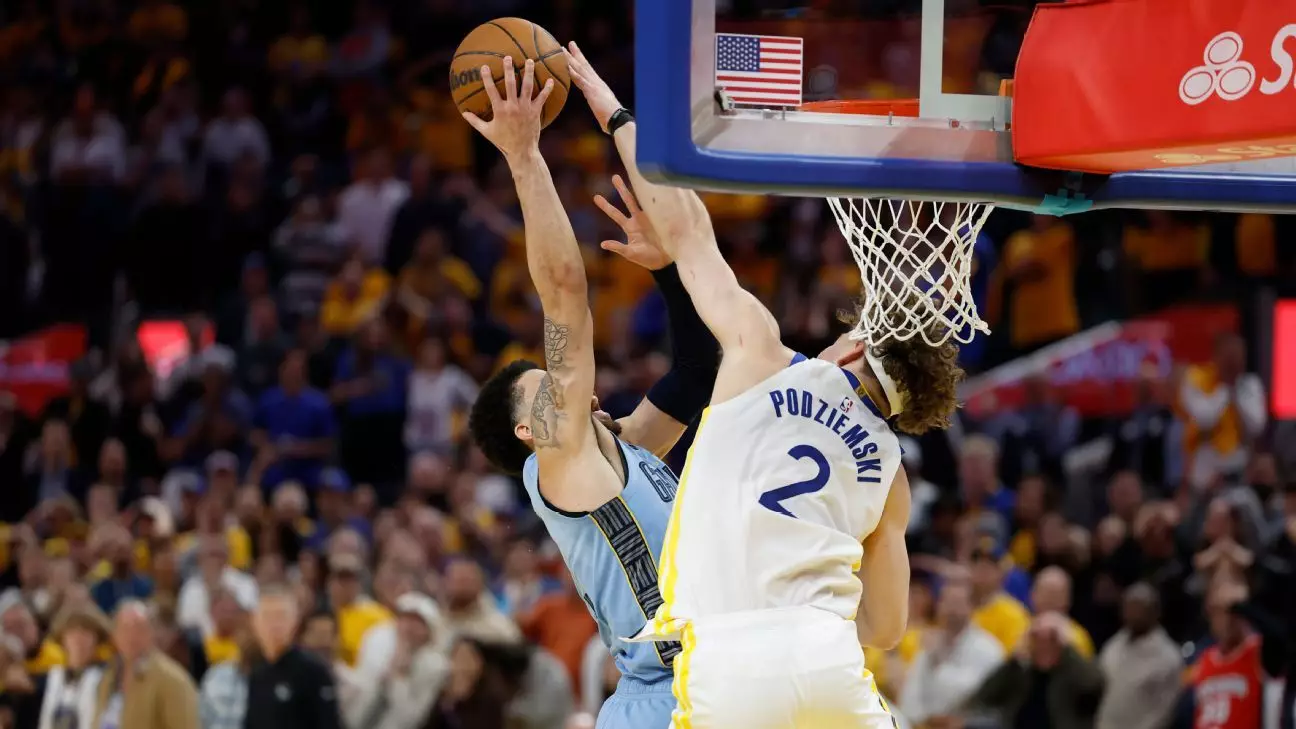In the world of professional basketball, every call made by referees can sway a game in profound ways, especially during critical moments. The recent playoff bout between the Golden State Warriors and the Memphis Grizzlies highlighted how referee errors can not only affect the game outcome but also provoke considerable debate and discontent among fans. The NBA’s Last Two Minute Report shed light on two significant blunders made by officials in the dying seconds, showcasing a need for accountability in officiating that is often overlooked in the heat of competition.
Missteps Under Pressure
As every basketball enthusiast knows, the final moments of a game are filled with tension and uncertainty. Unfortunately for the Warriors, the referees’ calls — or lack thereof — during these crucial moments have left a tarnish on their hard-fought 121-116 victory. One crucial mistake was the call against Brandin Podziemski for a foul that many deemed a clean block on Scotty Pippen Jr. This incorrect judgment led to free throws that tightened the score, indicating that these last-minute calls can dramatically shift the momentum and the psyche of both the players and fans alike.
Additionally, a critical out-of-bounds call involving Stephen Curry added further to the chaos. Instead of the Warriors maintaining possession, the ball was incorrectly awarded to the Grizzlies, exposing a clear oversight in officiating. It raises the question: how do such significant errors occur, particularly at such a decisive moment in a playoff game?
Accountability and the Heat of the Moment
Notably, the NBA affirmed other calls that constituted the framework of the game’s intensity, like the five-second violation attributed to Memphis during an inbounds play. While acknowledging faults is integral to improving the sport, these situations inevitably linger in the minds of players, coaches, and fans. It prompts an essential discussion on the level of scrutiny and transparency applied to officials. Should there be a structured mechanism for referees to face consequences for ourland indiscretions, especially when the stakes are so high?
Moreover, the officials’ choices in the game did not end with questionable calls; two non-calls added to the overarching drama. A foul that should have been levied against Draymond Green may have changed the landscape of the game entirely, especially as the seasoned player eventually fouled out. Similarly, Memphis center Zach Edey’s putback, which could have been disqualified for goaltending, ultimately granted his team a boost they should have not received.
Looking Forward: The Legacy of Referee Decisions
As the dust settles on this decisive game, this episode raises not only concerns about officiating quality but also highlights the critical nature of game management in the NBA. The ramifications of these calls will echo as the Warriors proceed into the playoffs, where every point counts and every possession is scrutinized. The officials have a responsibility that transcends mere game management; they are integral to the integrity of the sport itself.
In a high-stakes environment like the NBA, it is essential to ensure that the referees’ performances are meticulously evaluated, mechanics improved, and transparency upheld. The respect for the game and its players hinges upon that accountability and fidelity to fair play. It’s not simply about making the right call; it’s about preserving the essence of competition.


Leave a Reply